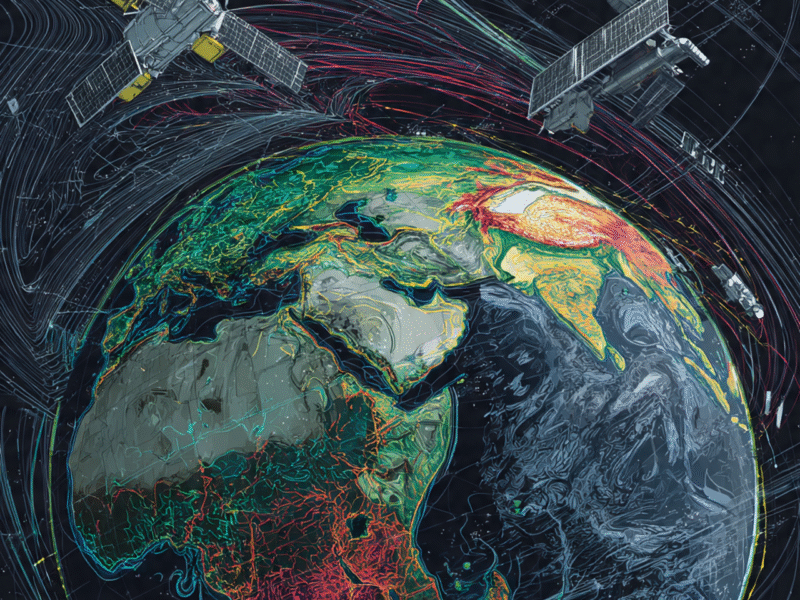Today, I am presenting to you a unique and comprehensive piece on the future of space tourism, being written for the first time in the world.

This writing will tell you how space tourism will redefine luxury, adventure, and humanity’s connection with the cosmos in the times to come. If you like this material, please let us know, and if you need more details on any specific topic, you can contact us.
🚀 Space Tourism: Humanity’s Next Cosmic Destination
Space tourism is no longer a subject of science fiction but is becoming a reality that will redefine tourism in the coming decades. When we think about space tourism, the idea of spending a few minutes in Earth’s orbit comes to mind, but in reality, the scope of space tourism is far broader. In the future, space tourism will offer experiences like walking on the deserts of Mars, climbing the mountains of the Moon, and flying close to asteroids. These journeys will not be limited to mere sightseeing but will reshape humanity’s relationship with the universe. The greatest feature of space tourism will be that it gives us the opportunity to see Earth from a new perspective. When tourists see Earth from space, they will realize that we are all inhabitants of a single planet and how small our differences are. This awareness will not only bring change at an individual level but will also help promote global peace and mutual cooperation. The economic aspects of space tourism are also extremely important. This industry will gradually become cheaper not only for the wealthiest individuals but also for the middle class, just as air travel was once only for the rich and is now accessible to the common person. The development of space tourism will create new employment opportunities, give rise to new technologies, and add a new dimension to humanity’s presence in the cosmos. This journey is, in fact, the journey of humanity’s future, which has the potential to take us to the stars.
When we consider the technical aspects of space tourism, we discover how rapidly this industry is advancing. Spacecraft like SpaceX’s Starship, Blue Origin’s New Shepard, and Virgin Galactic’s SpaceShipTwo are the first steps towards making space tourism common. These vehicles are not only capable of taking tourists into Earth’s orbit but could also make journeys to the Moon and Mars possible in the future. The biggest obstacle in the development of space tourism is cost, but the invention of reusable rockets has significantly reduced the cost of space travel. As this technology improves further, the cost of space travel will decrease even more, making it accessible to more and more people. The safety aspects of space tourism are also crucial. Work is ongoing on new technologies to reduce the risks involved in space travel. Advanced materials, improved life support systems, and better emergency procedures are making space travel safer. This journey of space tourism is truly a testament to humanity’s creative abilities and determination, which inspires us to make the impossible possible.
🌌 Redefining Luxury: Space Hotels and Cosmic Accommodation
Space tourism has completely redefined luxury. On Earth, luxury used to mean five-star hotels, private beaches, or exclusive resorts, but now the new standard of luxury is space hotels, zero-gravity spas, and watching the sunrise from Earth’s orbit. The Gateway Foundation’s under-construction Voyager Station will prove to be a revolutionary step in the field of space tourism. It will be the first space hotel to orbit Earth and provide tourists with the unique experience of living in zero gravity. This hotel will have 400 rooms, restaurants, gyms, and even a zero-gravity basketball court. It will not only provide accommodation but will also serve as a laboratory for scientists and research institutions. The experience of staying in space hotels will be completely different from any luxury hotel on Earth. Here, tourists will be able to see Earth from space, float in zero gravity, and enjoy cosmic views. This experience will not only be recreational but will also change the tourists’ mental and spiritual perspectives.
The luxury facilities in space hotels will be far more advanced than those in terrestrial hotels. Facilities such as zero-gravity spa treatments, cosmic viewpoint therapy, and stellar meditation sessions will be offered to tourists. The food in space hotels will also be unique, where fresh vegetables and fruits will be grown through space agriculture. The food prepared in space kitchens will not only be unique in taste but will also have higher nutritional value than Earthly food. The decor of space hotels will be completely different from Earthly hotels. The rooms and common areas here will be designed to give tourists the best opportunity to view Earth’s beauty. Window seating areas, zero-gravity lounges, and observatory decks will provide memorable experiences for tourists. Unique arrangements for entertainment will also be made in space hotels. Zero-gravity dance floors, holographic shows, and virtual reality games will be specially prepared for tourists. The experience of staying in a space hotel will truly present a new definition of luxury, incorporating a cosmic experience along with comfort and convenience.
The economic aspect of space hotels is also very interesting. Initially, the cost of staying in space hotels will be very high, but as technology improves and competition increases, prices will gradually decrease. The space hotel industry will not only attract wealthy tourists but will also become accessible to middle-class tourists. The construction and operation of space hotels will create new job opportunities. New professions such as space architects, zero-gravity hospitality managers, space chefs, and space entertainment coordinators will emerge. The space hotel industry will also have a positive impact on the Earth’s economy. The supplies and services required for space hotels will be provided by Earth-based companies, which will promote economic development. Space hotels will truly prove to be a revolution in the field of luxury tourism, which will not only change the definition of tourism but will also shape humanity’s future.
🪐 A New Standard for Adventure: Space Exploration and Tourism
Space tourism has elevated the concept of adventure to new heights. On Earth, adventure used to mean mountaineering, cave exploration, or deep-sea diving, but now the new standard for adventure is walking on the lunar surface, exploring the deserts of Mars, and flying near asteroids. Space adventure tourism is not only a physical adventure but also a mental and spiritual one. When tourists travel in space, they not only experience a new environment but also raise new questions about their own existence. Space adventure will have different levels. The initial level will include travel to Earth’s orbit, the zero-gravity experience, and viewing Earth. The intermediate level will include travel to the Moon’s orbit, viewing the lunar surface, and visiting a space station. The advanced level will include landing on the Moon, journeys to Mars, and asteroid exploration. Each level will have its own distinct adventure and challenges.
Lunar tourism will be the first major goal of space adventure. Landing on the Moon’s surface, observing its rocks, and viewing Earth from the Moon will be a unique experience. Special tours will be arranged for tourists on the Moon, including visits to Apollo landing sites, tours of the Moon’s south polar region, and driving on the lunar surface. Mars tourism will be the ultimate goal of space adventure. The journey to Mars is much more difficult and longer than the journey to the Moon, but it will be the biggest challenge for adventure-seeking tourists. On Mars, tourists will walk on the surface of the Red Planet, see Olympus Mons (the largest volcano in the solar system), and tour Valles Marineris (the largest canyon in the solar system).
Asteroid tourism will also be an interesting aspect of space adventure. Journeys to nearby asteroids will give tourists the opportunity to see these small celestial bodies up close. These journeys will not only be full of adventure but will also prove useful for science. During space adventures, tourists will receive various types of training. Training for working in zero gravity, practice in wearing space suits, and training in emergency procedures will prepare tourists for space travel. This training will not only be essential from a safety perspective but will itself be an adventure experience. The safety of tourists during space adventures will be the top priority. Advanced spacecraft, improved life support systems, and comprehensive rescue plans will ensure the protection of tourists. This journey of space adventure will truly be the fulfillment of humanity’s passion for adventure, introducing us to cosmic adventures beyond Earth’s boundaries.
🌍 Humanity’s Connection with the Cosmos: A New Perspective
Space tourism has reshaped humanity’s connection with the universe. When tourists view Earth from space, they are treated to a sight that is not possible while living on Earth. This view is not only beautiful but also brings a fundamental change in humanity’s perspective. The “Earthrise effect” is the psychological shift that astronauts felt when they first saw Earth from space. Space tourists will now also experience this effect. When tourists see Earth as a small blue dot, they will realize that we are all inhabitants of one planet, and our borders, our differences, and our conflicts are so trivial. This awareness will not only bring change at an individual level but will also help promote global peace and mutual cooperation.
The religious and spiritual aspect of space tourism is also extremely important. People from different religions and cultures will have spiritual experiences according to their respective beliefs during space travel. For some, the feeling of being in space will be like being closer to God, while for others, it will be a sense of the universe’s oneness. During space tourism, tourists will be provided with special opportunities for meditation and reflection. Zero-gravity meditation, stellar observation sessions, and cosmic contemplation periods will give tourists a chance to reflect on their existence and their place in the universe. These spiritual experiences will not only be beneficial for the tourists’ mental health but will also positively influence their life perspective.
The educational aspect of space tourism is also very important. During space travel, tourists will gain practical knowledge about science, astronomy, and space research. This experience will not only benefit the tourists, but they will also promote scientific awareness in society by sharing their experiences with others. Photos and videos taken during space tourism will go viral on social media, increasing public interest. The cultural aspect of space tourism is also fascinating. People from different cultures will celebrate their cultural rituals and traditions in the new environment during space travel. This cultural exchange will not only be interesting for tourists but will also promote intercultural understanding. This effect of space tourism is truly deepening humanity’s connection with the cosmos and encouraging us to think from a broader perspective.
💫 The Economic Aspect of Space Tourism: The Evolution of a New Industry
Space tourism is a new and rapidly growing industry whose economic impacts will be far-reaching. Initially, space tourism will only be accessible to the wealthiest individuals, but as technology improves and competition increases, prices will gradually decrease. The space tourism industry will develop in various stages. The first stage will involve suborbital flights, offering a few minutes of zero-gravity experience. The second stage will involve orbital flights, providing the opportunity for a few days in space. The third stage will include travel to the Moon’s orbit, and the fourth stage will involve landing on the Moon and journeys to Mars. Each stage will have its own distinct economic dynamics.
Different types of companies are working in the space tourism industry. Companies like Virgin Galactic and Blue Origin are focusing on suborbital flights, while companies like SpaceX and Boeing are preparing for orbital flights. Companies like Axiom Space are developing modules for space stations, while companies like Orion Span plan to build space hotels. All these companies are collectively nurturing the space tourism industry. The space tourism industry will not only consist of companies providing space travel but will also include many subsidiary industries. Companies making space suits, companies producing space food, space training providers, and space insurance companies will also be part of this industry.
The impact of the space tourism industry on employment will also be profound. This industry will give birth to new professions. Careers such as space pilots, space guides, zero-gravity instructors, space hospitality managers, and space tourism marketing experts will emerge. This industry will not only create direct employment but will also indirectly generate job opportunities. The space tourism industry will also have positive effects on the Earth’s economy. The equipment and services required for space tourism will be provided by Earth-based companies, which will promote economic development. The space tourism industry will truly prove to be a new engine for economic growth, creating opportunities not only for rich countries but also for developing nations.
🛰️ Technological Evolution: Making Space Tourism Possible
Technology plays an extremely important role in the development of space tourism. Advancements in space technology over the past few years have made space tourism possible. The invention of reusable rockets has significantly reduced the cost of space travel. SpaceX’s Falcon 9 rocket proved that rockets can be reused, reducing the cost of space travel by up to 90%. This reduction is crucial for space tourism, as without it, space tourism would only be accessible to the wealthiest individuals. The use of advanced materials has reduced the weight of spacecraft, improving their performance. The use of carbon composites and other lightweight materials can make spacecraft lighter and stronger.
Advancements in life support systems have made long-duration space travel possible. Advanced water recycling systems, air revitalization systems, and food production systems can create a self-sustaining environment in spacecraft. These systems will allow space tourists to stay in space for extended periods. Advancements in spacecraft design have made space travel more comfortable. New spacecraft feature spacious cabins, comfortable seats, and large windows, which will provide a better experience for tourists. Spacecraft like SpaceX’s Starship have the capacity to carry more than 100 people, which will increase the scale of space tourism.
Advancements in safety systems have made space travel safer. Risks of space travel are being reduced through advanced escape systems, emergency return capabilities, and improved landing systems. These systems will ensure the protection of tourists. Advancements in communication systems have improved connectivity during space travel. High-speed internet, video conferencing, and real-time communication will allow tourists to stay in touch with their loved ones during space travel. These technological advancements are truly making space tourism possible, and in the coming times, these advancements will make space tourism cheaper, safer, and more comfortable.
🌟 The Future of Space Tourism: Plans for the Coming Decades
The future of space tourism is extremely bright, and in the coming decades, we will see revolutionary changes in the field of space tourism. By 2030, we will see regular space tourism programs in Earth orbit. Axiom Space’s space station module is launching in 2024, which will be a luxury destination for space tourists. This module will not only provide accommodation for tourists but will also be a research center for scientists. After 2030, we will see lunar tourism programs. NASA’s Artemis program plans to return humans to the Moon by 2024, after which commercial lunar missions will begin. SpaceX’s Starship will be capable of taking tourists to the Moon, and other companies are also planning lunar tourism projects.
By 2040, we could see the initial programs for Mars tourism. SpaceX’s Starship is being designed to take humans to Mars, and the first Martian missions could begin in the 2030s. Mars tourism will initially be extremely expensive, but it will become cheaper over time. By 2050, we could see asteroid mining and asteroid tourism programs. Journeys to nearby asteroids will give tourists the opportunity to see these small celestial bodies up close. These journeys will not only be full of adventure but will also be useful for science.
The role of virtual reality and augmented reality will also be important in the future of space tourism. Tourists will be able to experience space travel through virtual reality, even those who cannot undertake real space travel. Through augmented reality, tourists will be provided with information about various galaxies, stars, and planets during their space journey. The future of space tourism is truly very bright, and in the coming decades, this industry will not only change the definition of tourism but will also shape humanity’s future.
🌍 The Global Impact of Space Tourism: Effects on Humanity’s Future
The global impact of space tourism will be profound and far-reaching. This industry will not only promote economic development but will also increase cultural exchange, international cooperation, and global peace. During space tourism, people from different countries and cultures will travel together, which will promote intercultural understanding. When tourists see Earth from space, they will realize that we are all inhabitants of one planet and how small our differences are. This awareness will not only bring change at an individual level but will also help promote global peace and mutual cooperation.
The environmental impact of space tourism is also important. When tourists see Earth from space, they will become aware of its beauty and fragility, which will make them more committed to protecting it. The space tourism industry itself will also help promote environmentally friendly technologies. Renewable energy sources, efficient resource utilization, and waste management systems developed for space tourism can also be used on Earth.
The educational impact of space tourism will also be deep. Space travel experiences will increase the knowledge and understanding of tourists, and they will promote scientific awareness in society by sharing their experiences with others.
The biggest impact of space tourism will be that it opens new paths for humanity’s future. Through space tourism, humanity will realize that our destination is not just Earth, but our destination is the entire universe. This awareness will encourage humanity to reach for the stars and prepare us to become an interplanetary species. Space tourism is, in fact, the journey of humanity’s future, giving us the opportunity to step beyond Earth’s boundaries into the vast field of the cosmos.


